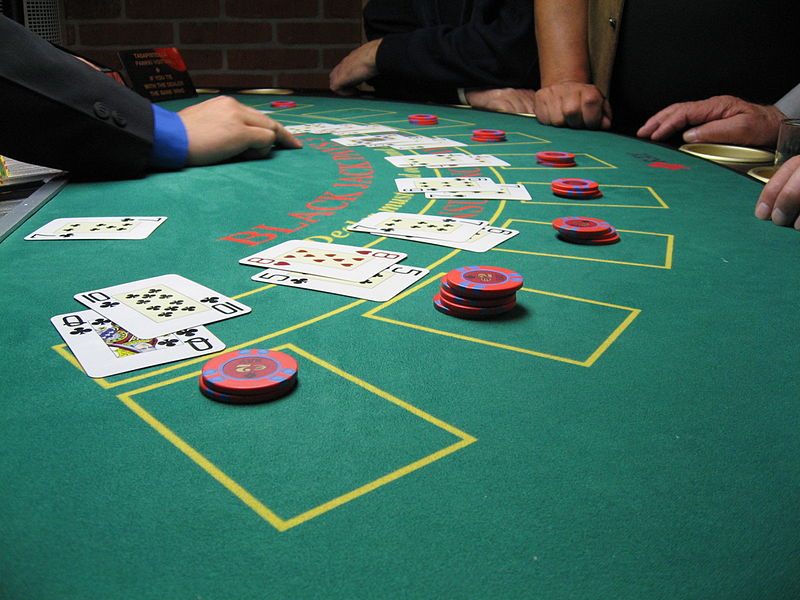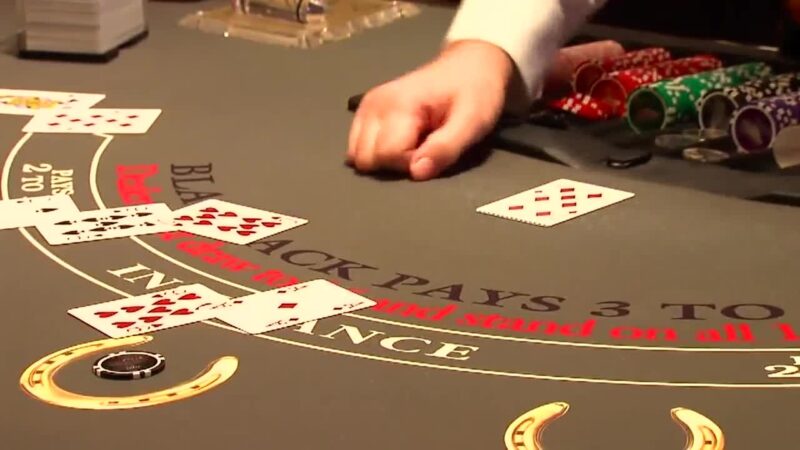In the captivating realm of casinos, few games evoke as much intrigue and strategy as blackjack. With its tantalizing blend of chance and cunning, players find themselves pitted against a dealer, vying for the elusive 21.
Yet, beneath the luminous lights and the shuffling of cards lies a complex web of mathematics that governs every hand. The question looms large: Can you truly beat the dealer? Armed with a blend of probability, strategy, and a keen understanding of the game’s nuances, players can tilt the odds in their favor.
This exploration invites you to delve deeper into the numerical foundations that underpin blackjack, revealing how decisions made at the table can lead to triumph or defeat. Prepare to uncover the secrets hidden within the deck, where the dance of numbers and strategy holds the key to success.
Understanding the Basic Rules of Blackjack

To truly grasp the essence of Blackjack, one must first navigate its foundational rules. Each game begins with players receiving two cards, while the dealer conceals one of theirs, enshrouding the beginning of a suspenseful showdown.
The objective? To amass a hand value as close to 21 as possible, without exceeding it—a delicate balance of risk and reward. Cards from 2 to 10 are valued at their face value, while face cards—kings, queens, and jacks—each carry a value of 10.
The ace, however, is a wildcard, flexible enough to represent either 1 or 11, potentially altering the tide of play with a single decision. As players choose between hitting, standing, doubling down, or splitting pairs, they wade through a blend of strategy and chance, all while keeping a vigilant eye on the dealer’s visible card.
Understanding these basic rules may seem straightforward, but the game unfolds layers of strategy that challenge even the most astute players.
The Role of Probability in Blackjack

Probability plays a pivotal role in the game of Blackjack, weaving a tapestry of chance and strategy that can significantly influence the outcome. At its core, each card dealt reshapes the probabilities of what can come next, creating a dynamic that is both thrilling and complex.
For instance, knowing that a deck is rich in high cards can tilt the odds in favor of a player, enhancing the likelihood of hitting that coveted Blackjack. Conversely, a low card count may compel a player to adjust their strategy, perhaps opting for a more conservative approach.
When faced with decisions—whether to hit, stand, or double down—understanding these shifting probabilities can mean the difference between a triumphant win and a disheartening loss. However, it’s not merely about the numbers; it’s about reading the game, predicting the dealer’s potential moves, and harnessing every bit of mathematical insight to outsmart the house.
Thus, mastering the probability landscape of Blackjack is not just an exercise in number crunching; it’s a thrilling dance of intellect and luck, one that keeps players coming back to the felt in hopes of beating the dealer.
The Importance of Bankroll Management

Bankroll management is the cornerstone of any successful blackjack strategy, serving as both shield and sword in the unpredictable landscape of the casino. Imagine stepping into a game without a clear understanding of your limits; it’s a risky endeavor that invites disaster.
Allocating a specific portion of your total bankroll for each session not only protects you from the emotional turmoil of chasing losses but also provides a disciplined framework to enhance your gameplay. By setting clear winning and losing thresholds, players can navigate the highs and lows of the game with a level head, ensuring they walk away when the cards aren’t in their favor.
Moreover, with each hand dealt, the stakes can fluctuate wildly, making it imperative for players to adjust their bets according to the remaining bankroll. This adaptive approach creates a dynamic playstyle, empowering you not only to enjoy the game but also to maximize your chances of long-term success.
Conclusion
In conclusion, understanding the mathematics behind blackjack can greatly enhance a player’s ability to make informed decisions at the table. By applying strategies based on probability, such as card counting and understanding the dealer’s odds, players can tilt the odds in their favor and potentially beat the dealer.
While luck will always play a role in gambling, knowledge and strategy can create a significant advantage. For those looking to delve deeper into the intricacies of blackjack and other casino games, resources like https://spy-casino.com/ offer valuable insights and tips to help improve your game. Ultimately, whether you’re a novice or a seasoned player, a firm grasp of the mathematical principles at play in blackjack can elevate your experience and increase your chances of success.


